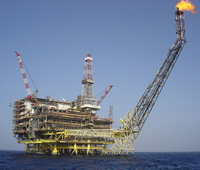With oil prices nearing $120 a barrel and Libyan exports shut down, all eyes were on the 12 members of the Organization of Petroleum Exporting Countries (OPEC) during their meeting in Vienna earlier this month. The International Energy Agency (IEA) had strongly urged OPEC, which produces 40 percent of the world's oil and holds much of the spare capacity, to raise production output to stem rocketing oil prices and prevent a potential double-dip recession.
That did not happen. In what Saudi Oil Minister Ali al-Naimi labeled one of the worst meetings he had attended, the proposal by Saudi Arabia, Kuwait, Qatar and the United Arab Emirates to raise output by 1.5 million barrels a day was torpedoed by Libya, Angola, Ecuador, Algeria, Iran and Venezuela.
Divisions are not new to OPEC: Member countries sometimes disagree on the extent to which economic slumps are caused by high oil prices. Yet it would be a mistake to reduce the cause of OPEC's stalemate to a mere philosophical dispute. Such a frank and public acknowledgement of division is rare for the usually secretive organization. Al-Naimi specifically named countries that opposed production increases and said Saudi Arabia would increase its output unilaterally, while Iran's caretaker oil minister, Mohammad Aliabadi, snidely remarked that Riyadh's push to hike output was tied to U.S. interference.

